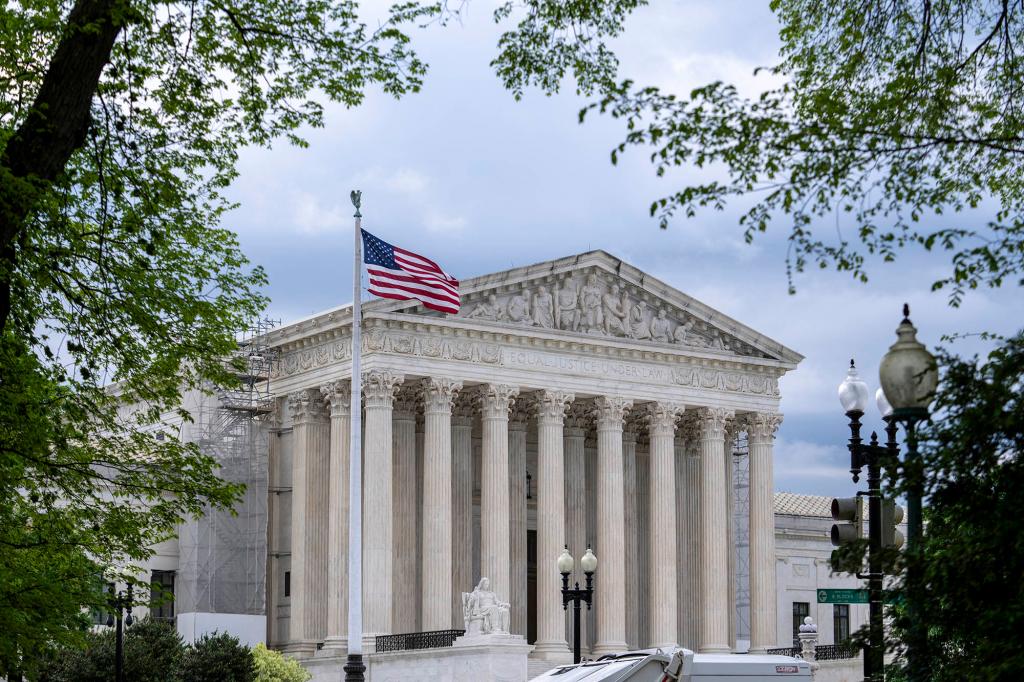The Supreme Court has ordered Louisiana to hold congressional elections in 2024 using a House map with a second mostly Black district, despite a lower-court ruling labeling the map as an illegal racial gerrymander. This decision could potentially increase Democrats’ chances of gaining control of the House of Representatives in the upcoming elections. The order was made in response to emergency appeals filed by the state’s top Republican officials and Black voters, who argued that clarity was needed as the elections approached due to the state being approximately one-third Black.
The Supreme Court’s order does not address the lower court’s ruling that found the map relying too heavily on race but instead, prevents the creation of a new map for this year’s elections. The possibility still remains that the Supreme Court may decide to hear arguments about the decision to strike down the Louisiana map at a later date. The order was met with dissent from the court’s three liberal justices, who felt that the decision to strike down the map should have been allowed to create a new map before the Supreme Court intervened to prevent confusion so close to the elections.
In a previous case concerning elections that were approaching, Justice Brett Kavanaugh stated that it was crucial to provide enough time to voters and elections officials for orderly balloting. The court has yet to set a specific deadline for how close to an election is too close to make such decisions. A lawyer representing the Black voters praised the court’s action, appreciating the certainty brought by having a map with two majority Black districts in place for the upcoming elections.
Louisiana has faced multiple challenges with its congressional maps being blocked by federal courts over the past two years, leading to various lawsuits and interventions by the Supreme Court. The state’s Republican-dominated legislature designed a new congressional map in 2022, which was challenged by civil rights advocates for discriminating against Black voters. The Supreme Court had previously allowed the state to use the maps in the 2022 elections, delaying any changes until new maps could be created for the 2024 elections.
The 5th U.S. Circuit Court of Appeals had set a deadline for lawmakers in Louisiana to draw a new map by early 2024 or face the possibility of a court-imposed map. New Governor Jeff Landry, a Republican, initially defended Louisiana’s congressional map as attorney general but later urged lawmakers to adopt a new map that included another majority Black district. Controversy arose as a group of non-African American plaintiffs claimed the new map was unconstitutional due to its racial motivation. Republicans argued that the map was politically driven, providing safe districts for prominent party members while also favoring certain candidates based on political, not racial considerations.
Despite the legal battles and political debates, the addition of a mostly Black district in the new map could potentially benefit Democrats by giving them an opportunity to secure another House seat. Democratic state Sen. Cleo Fields, a former congressman who is Black, has already expressed his intention to run for Congress in the new district if it is established in time for the next election. Overall, the ongoing challenges and changes to Louisiana’s congressional map reflect the complex and contentious nature of redistricting in the state, with political and racial considerations playing significant roles in shaping the future representation of its congressional districts.


